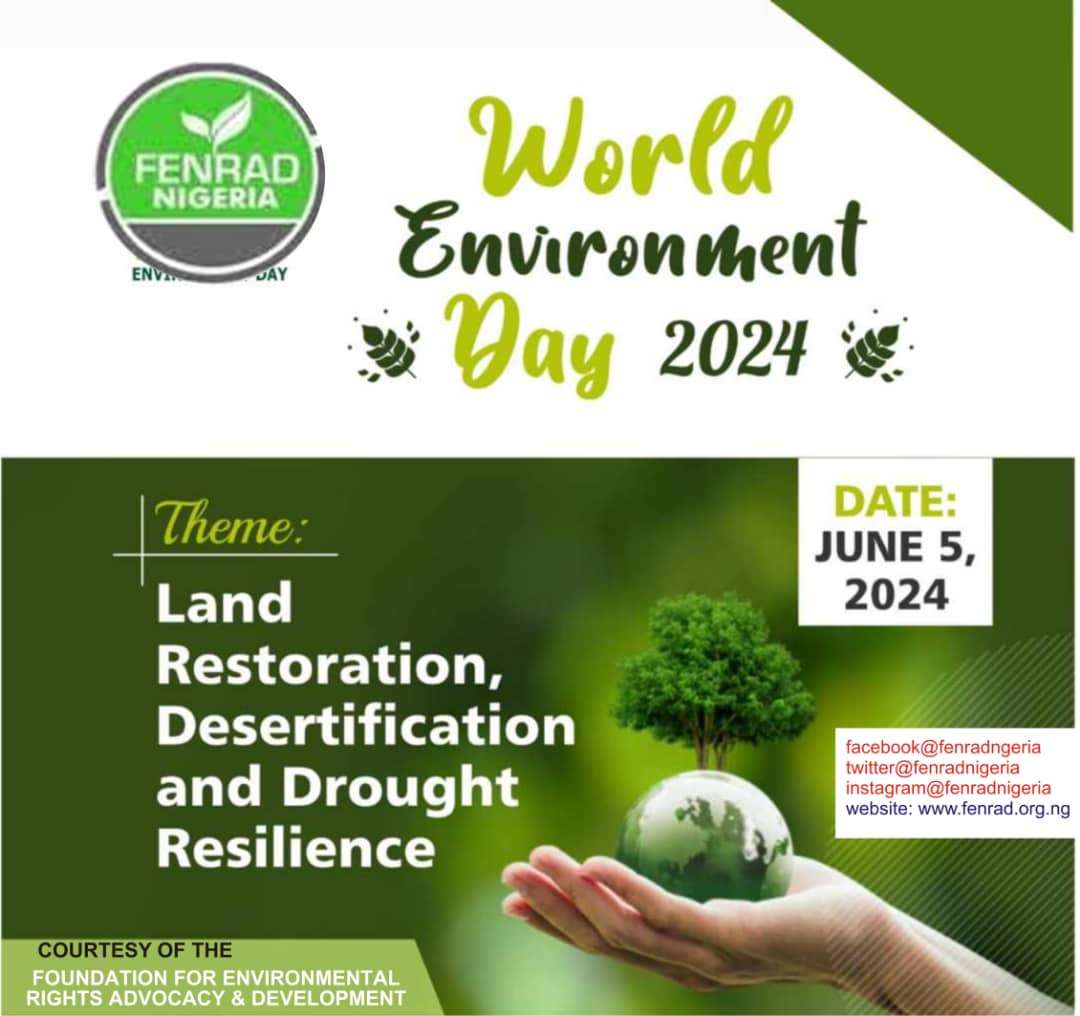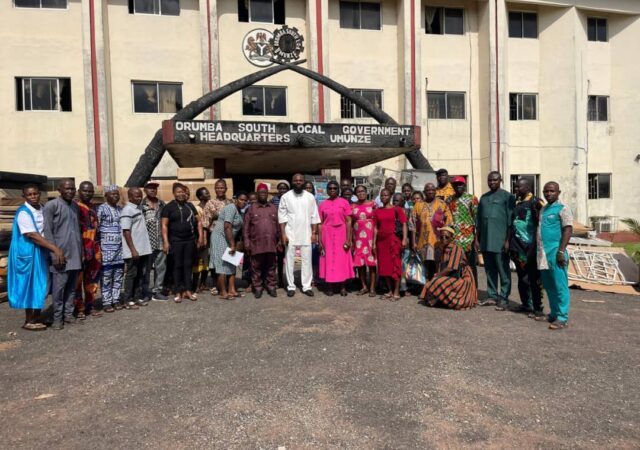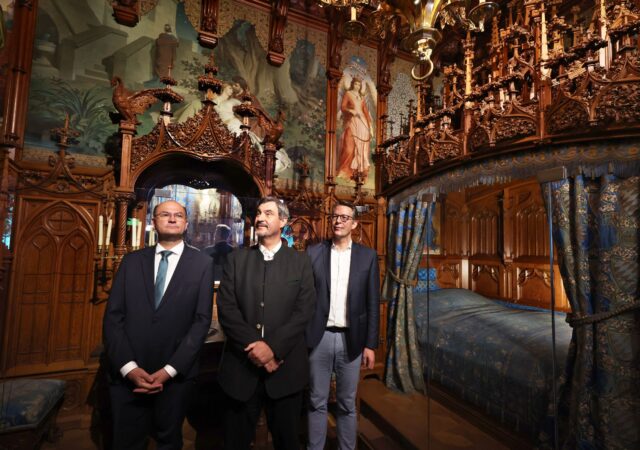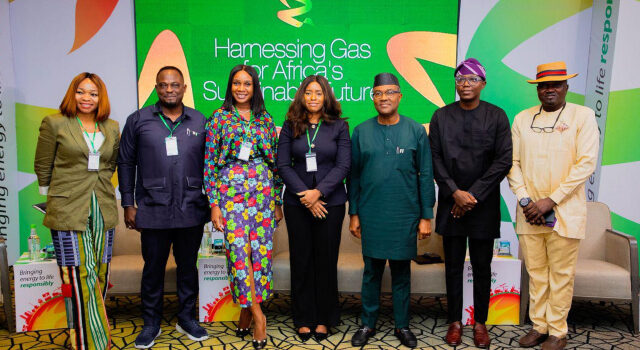By Comrade Nelson Nnanna Nwafor
As the world marks the World Environment Day on June 5, 2024, the Foundation for Environmental Rights, Advocacy and Development, FENRAD, a human and environmental rights-focused group based in Abia State and climiate Sustainable & Development Network Southeast Zone joins the rest of the world to mark this annual observance.
As an environmental rights advocacy group, FENRAD/ CSDEVNET envisions a fuller and livable world whose ecosystem carries all lives and supports biodiversity. This should remain a resolute commitment in spite of all the mounting challenges. The Foundation therefore calls on state and non-state parties, including signatories to protocols, pacts, conventions and agreements on environmental rights and protection to raise the bar of enlightenment to environmental issues as our lives on the planet depend on them.
Though a programme of the United Nations Environmental Programme (UNEP) observed for the first time in 1973, the World Environment Day creates platforms through which environmental campaigners, states and non-state parties come together to encourage environmental awareness and solutions that enhance Sustainable Development Goals, SDGs.
Today’s theme is ideally crucial in many ways, especially for a state like Nigeria and all the subnationals thereof. With the slogan ‘Our land. Our future. We are #GenerationRestoration,’ the 2024 World Environment Day places a call on our humanity to ensure that ecosystem restoration is prioritised as a global initiative.
Increasingly, the world’s topsoil and the physical spaces which harbour lives are shrinking daily. Desertification is at the core of this problem, occasioned by worsening climatic conditions – the result has always been pastoral conflict in Nigeria where the perennial farmer/herder clash over the control of land and, sometimes, water resource is recrudescent.
According to the UN Convention to Combat Desertification, up to 40 per cent of the planet’s land is degraded, directly affecting half of the world’s population (see www.un.org). This shows the urgency of the need to take action.
FENRAD / CSDEVNET calls on the federal, state and local governments, including all non-state actor groups in Nigeria to ensure that deforestation is drastically addressed through tree planting to ensure land restoration and also serve as a carbon sink mechanism, in line with the African Union’s Great Green Wall Project for which Nigeria promised to plant 25 million trees. Beyond merely advocating mitigation and adaptation, or decarbonisation of the transport sector by transitioning to CNG vehicles, the government should encourage reafforestation, replantation and revegetation as a way out of the deleterious disaster. This is the easiest thing to do.
Lastly, FENRAD/ CSDEVNET calls on the Abia State Government to prioritise ecosystem restoration in its environmental regime. It is true that environmental sanitation in Abia State has improved significantly, managing the sector also should involve erosion control and checking of land degradation. Currently, there exist over three hundred erosion sites in Abia with many of these sites at the margins of border communities. Should Abia fail to adopt restorative measures towards these gully heads, who knows, it could be losing land. This is an awareness that should diffuse to every part of the state to the point where everyone takes responsibility.
To restore the ecosystem and put an end to land degradation is a goal whose agenda must be pursued by all.
…………………………………………
Comrade Nelson Nnanna Nwafor is the Executive Director of the Foundation for Environmental Rights, Advocacy & Development (FENRAD Nigeria) & Southeast Zonal coordinator, Climate & Sustainable Development Network, CSDEVNET.







